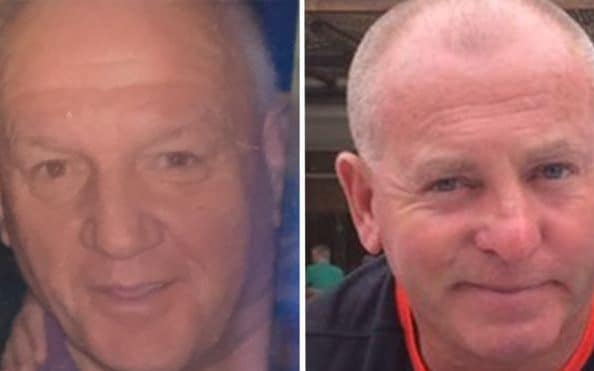Family of railway workers killed while wearing ear defenders condemn Network Rail whistle warning system

The family of a railway worker killed while wearing ear defenders has condemned Network Rail’s “whistle and flag” warning system, branding it not fit for the 21st Century.
In their first newspaper interview, the family of Gareth Delbridge told the Telegraph that there has to be a fundamental shift in the way that Network rail views the safety of its own workers and that they are pursuing a civil claim to prove that the company was negligent in its duty of care as an employer.
Mr Delbridge, 64 and Michael Lewis, 58 were killed after being struck by a train while they were carrying out work on the tracks near Port Talbot in July. They were using a tool with a petrol engine and were wearing ear defenders at the time.
An initial report by Network Rail found that they had not deployed a person to act as a lookout for approaching trains, and that wearing ear defenders meant there should have been a second ''touch lookout'' who could have physically warned the men.
There was, the report said, ''no safe system of work in place for those working on the points,” and that the men “were unaware of the approaching train.''

A third worker was also injured.
Speaking for the first time since launching a civil action against Network Rail, Adrian Grant told the Telegraph that his father-in-law Mr Delbridge was “an absolute gentleman and a real pillar of the community.”
He was a great-grandfather who was “passionate about his job” and didn’t take a single sick day in 44 years working on the railway network.
Now, searching for answers from Network Rail, Mr Grant says: “It has been a living nightmare for both families and we want to do everything in our power to make sure no other families go through what we have been through.
“The fact that people are being put out on the rails to wave flags and blow whistles when there are trains moving, in the 21st century, that needs to be reviewed,” he said.
Network Rail employs a lookout system where someone who is certified as competent to watch for approaching trains gives a warning to others using a whistle, horn or by touch, but there is also extensive unofficial use of flags across the rail system.
A report into a near miss between a train and a track worker in Peterborough in 2018 found that “although these flag signals appear to be in widespread use by various maintenance disciplines across many depots, their unofficial status means there is no control over them.
“This has resulted in variations between what different teams do, which in turn can lead to confusion and misunderstandings as evidenced by this incident.”

Manuel Cortes, General Secretary of the Transport Salaried Staffs' Association said of the current warning system: “It should be abolished, that is the long and short of it.
“It’s such a rudimentary method of preventing people working on the railway from getting run down by a train.
“What’s needed is a proper strategic planning approach, including planning for lines to be made unavailable for trains to use while safety and maintenance work is carried out.
There are currently three separate investigations into the incident, being conducted by Network Rail, British Transport Police and the industry’s regulator, the Office of Rail and Road.
“We are hoping that we’re going to get some real feedback out of these investigations about what made this date different to any other date that these boys went to work, to try and prevent any incidents in the future,” said Mr Grant.

Martin Frobisher, Network Rail’s safety director, said: “The whole railway family shares the loss of Gareth Delbridge and Michael Lewis.
“Nothing will lessen the pain but understanding what went wrong and learning from that will, I hope, go some way to reassure all those affected that we will do all we can to stop it ever happening again.”
The group announced it would spend £70m over two years to improve track worker safety by “designing and developing new protection and warning systems using digital technology to warn workers of approaching trains.”
For his father-in-law and Mr Lewis, it is “too little, too late” said Mr Grant.
“What we want to come out of this is a fundamental change to stop the red zone working or live line working, where you don’t put people on the track when trains are going on them.
“There’s got to be a huge shift between making that type of work safer than what it is now. There has to be a fundamental shift in the way that Network rail views the safety of its own workers.”

 Yahoo News
Yahoo News 
